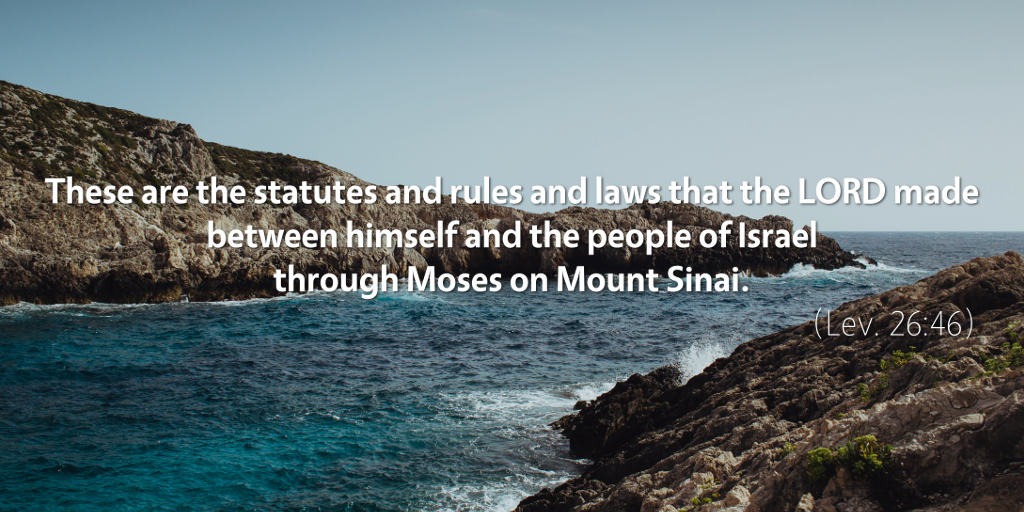Bible Readings for April 22nd
Leviticus 26 | Psalm 33 | Ecclesiastes 9 | Titus 1
The promises of the old covenant were a two-edged sword. On the one hand, Yahweh promised to establish paradise on earth for Israel if they obeyed all his statutes and commandments, but on the other hand, Yahweh promised hell on earth if his people refused to listen to him and spurned his laws. In Leviticus 26, Yahweh lays out the two paths that his people could take: blessings for obedience or curses for disobedience.
Yahweh promises specific material blessings side by side with their corresponding material curses. For obedience, Yahweh would bless Israel with abundant rains and good crops (Lev. 26:3–5), peace (Lev. 26:6–8), and prosperity (Lev. 26:9–10). For disobedience, however, Yahweh would send wasting diseases (Lev. 26:16, 25), crippling military defeats (Lev. 26:17–19, 25, 33, 36–39), famine (Lev. 26:16, 20, 26), and attacks from wild beasts (Lev. 26:21–22).
But Yahweh also makes promises about spiritual blessings and curses in this passage. In fact, the most breathtaking phrase in this entire chapter comes in Leviticus 26:12: “And I will walk among you and will be your God, and you shall be my people.” This is a special form of the verb that is probably best translated as “walk back and forth.” This is the same form of “walk” used to describe Yahweh’s walking in the Garden of Eden immediately before Adam and Eve were cursed for their own disobedience (Gen. 3:8).
If we wonder why the punishments Yahweh promises are so harsh, we might consider the intimacy that Yahweh was offering to Israel here: nothing less than the intimacy Yahweh enjoyed with his people in the Garden of Eden. In the same way, Yahweh was promising to be Israel’s God, so that Israel would be his people. And on the flipside, he was promising to react like a betrayed husband with jealous rage if he discovered Israel’s infidelity to him.
So as we keep reading the story of the Bible, we learn two things. First, Yahweh will rage against the faithlessness of his people with a righteous jealousy, since he is a jealous God whose very name is Jealous (Ex. 34:14).
But second, we will also read that, while Yahweh may cast away his people for a time, his deep love and compassion for them makes it impossible for Yahweh to abandon his people forever (Hos. 11:8). The rest of the story of the Bible tells us the deep tension between Yahweh’s jealous wrath against his people for their infidelities and his great love and compassion that moves him to forgive them and reconcile them to himself.
And at the cross, that tension comes to full force. On Jesus—God’s own Son—the Father poured out the wrath of the covenant curses of Leviticus 26 so that, through Christ, we might receive God’s covenant blessings instead.
Podcast: Play in new window | Download (5.6MB) | Embed
Subscribe: Apple Podcasts | RSS | More

Scripture quotations are from The Holy Bible, English Standard Version copyright © 2001 by Crossway Bibles, a division of Good News Publishers. Used by permission. All rights reserved.


